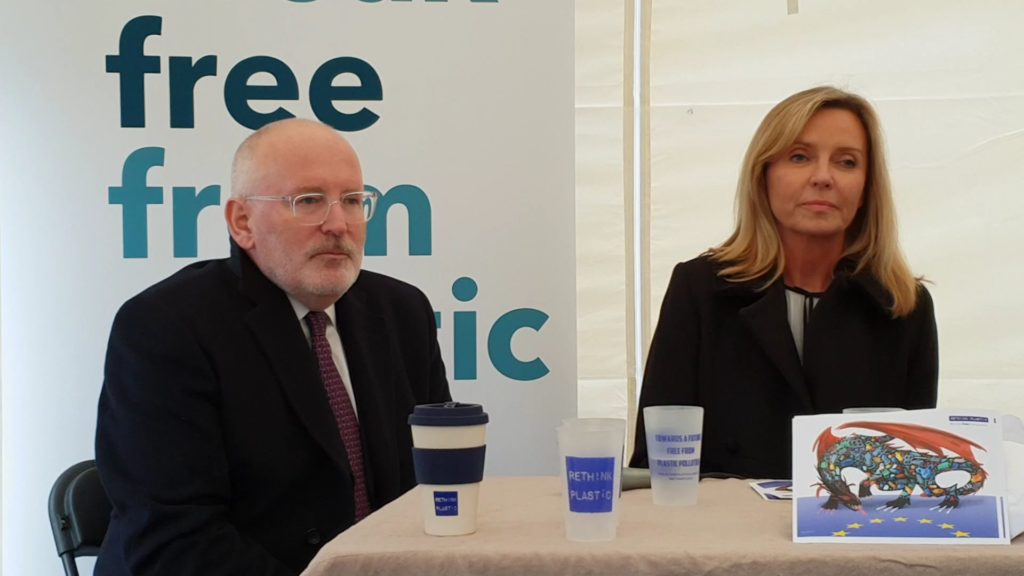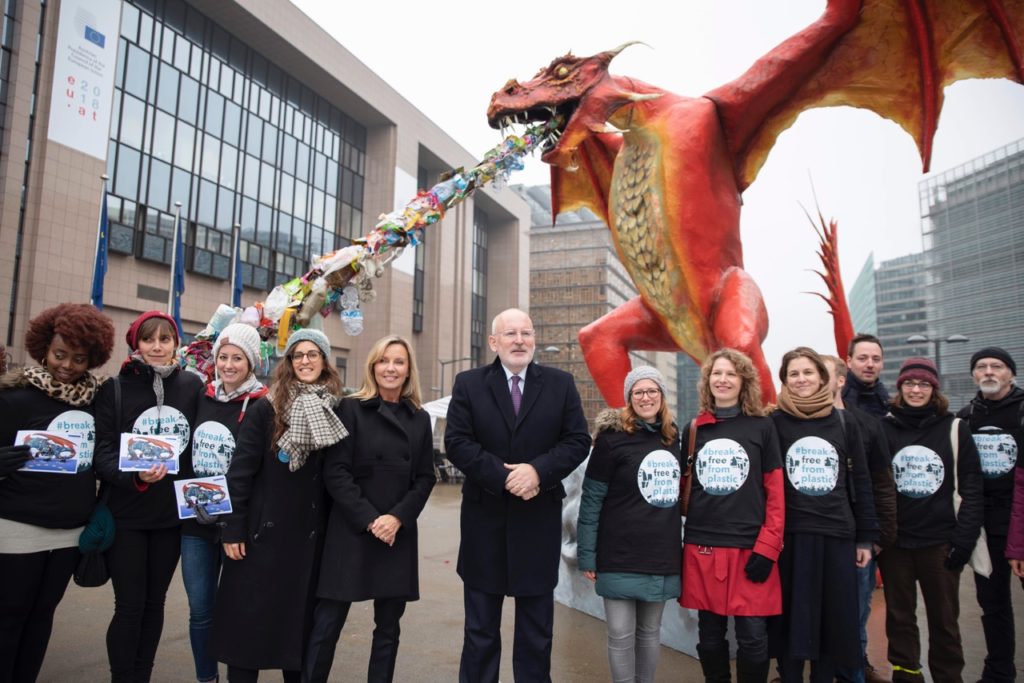After the European Parliament’s position on EU single-use plastic laws made headlines around the world in October, the agreement on the final deal concludes on Tuesday night as the Council of the EU, the EU Parliament and the EU Commission finish negotiations.
More background on the political process here.
Meadhbh Bolger, resource justice campaigner at Friends of the Earth Europe for Rethink Plastic said: “People across Europe celebrated the EU Parliament’s vote for ambitious plans to cut single-use plastics back in October – but the final deal still needs to be agreed with governments and the EU Commission on Tuesday night. It looks like governments will back bans on a number of products, but this alone is not enough to solve the plastics crisis. They need to stop digging their heels in and back measures to ensure producers pay for the pollution they cause.”
What’s happening and when?
- Tuesday December 18th – final negotiations between EU Commission, Parliament and Council, beginning around 18:00 and set for a final agreement in the early hours of December 19th
- Thursday December 20th – formal sign off by national ministers at Environment Council
- End January – formal sign off by European Parliament
- March/April – entry into force (launching the 2 year transposition period for Member States)
What’s at stake and what do we expect?
Based on the latest texts from trilogue negotiations and technical discussions, and further intelligence gathering, these are the key issues to look out for.
Where might the Council weaken the deal?
- Producers paying for plastic waste: The Council may delay the implementation of extended producer responsibility (EPR) schemes by 4 years (from 2021 to end of 2024). These schemes would ensure producers (including big tobacco companies and top polluters from the packaging industry including Coca Cola, Pepsico and Nestle) contribute to pay for the costs of waste management, litter clean-up and awareness raising of several single-use plastic items they produce including cigarette butts, the most littered item in Europe. The Council also wants the possibility for EU countries to implement EPR through voluntary agreements with companies. The Parliament has opposed this fiercely so far, particularly for tobacco products and filters.
- Collection targets for plastic bottles: The Parliament stuck to the Commission’s proposal of a 90% collection rate for single-use plastic beverage containers by 2025, but it is now likely the Council will water this down to 75% by 2025 and 90% by 2030. With countries like Lithuania achieving a rate of 90% within 2 years of implementing a deposit return system, there is no excuse for a delay.
- Backing off on collection and recycling targets for fishing gear: Although the Commission officially supported the 50% separate collection rate proposed by Parliament, it looks like neither this target nor the recycling target will pass.
Likely compromises
- Reducing consumption of plastic food containers and cups: The Parliament voted for an EU-wide 25% reduction in consumption of these items by 2025. However, both Commission and Council are not supporting quantitative targets, instead leaving it open and vague as a “significant reduction”. There may be a compromise, so watch out for the inclusion that Member States must develop national reduction targets followed by EU-wide targets.
- Producer responsibility for fishing gear: EPR will be mandatory and it is likely there will be binding reporting requirements for gear placed on the market and collection rates of waste gear, which will allow for the establishment of quantitative targets in the future. The circularity of fishing gear is also likely to be encouraged by specific eco-design standards for reuse and recycling.
Likely to go through
- Single-use plastic bans: In addition to bans on single-use plastic straws, cutlery, plates, beverage stirrers, cotton bud sticks and balloon sticks by 2021, Parliament added new items to the ban list – oxo-degradable plastics and expanded polystyrene food containers. It is likely these will be agreed on by all sides, as well as a ban on expanded polystyrene cups. However, there is likely to be a delay on the ban to paper plates with plastic lining to 2023.
Key facts
- – Every year the EU28 consumes:
580 billion plastic cigarette filters
46 billion plastic beverage bottles
2.5 billion takeaway food containers
16 billion plastic coffee cups
36.4 billion plastic drinking straws
- – About 80 percent of all plastic ever produced has accumulated in landfills or the natural environment.
– Under 30% of the annual European plastic waste is collected for recycling, with the rest landfilled, incinerated, or leaked into the environment. 40% of the plastics collected for recycling are exported, mainly to Asia.
- – Without effective reduction measures, it is expected that by 2025 global plastics production capacity will increase by more than one third.
– Waste fishing gear such as nets and ropes are among the 10 most common marine litter items found on beaches (27% of the total).
– There are over 4000 chemicals associated with plastics packaging for which information on the level and toxicity is difficult to access.
– Takeaway drinking straws given out by fast food restaurants in the EU in one year would stretch to the moon and back 10 times.

